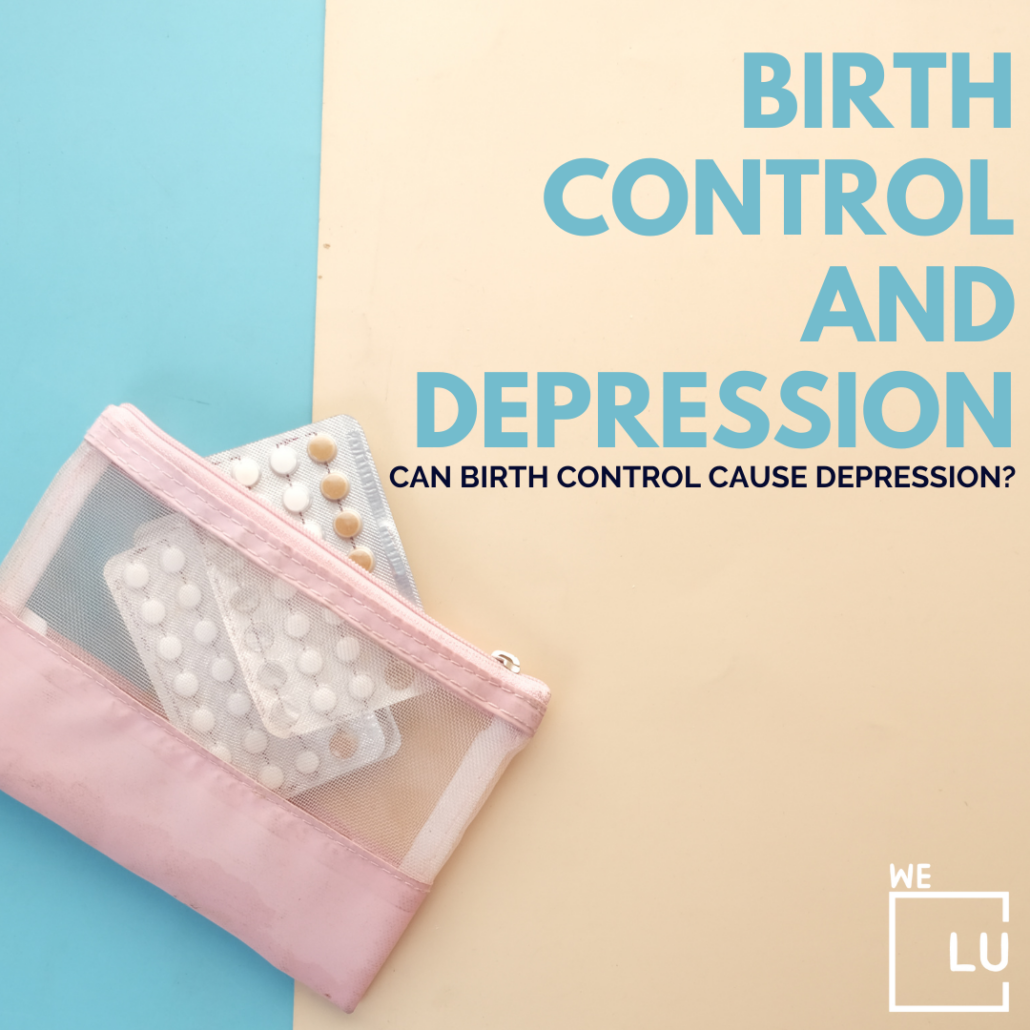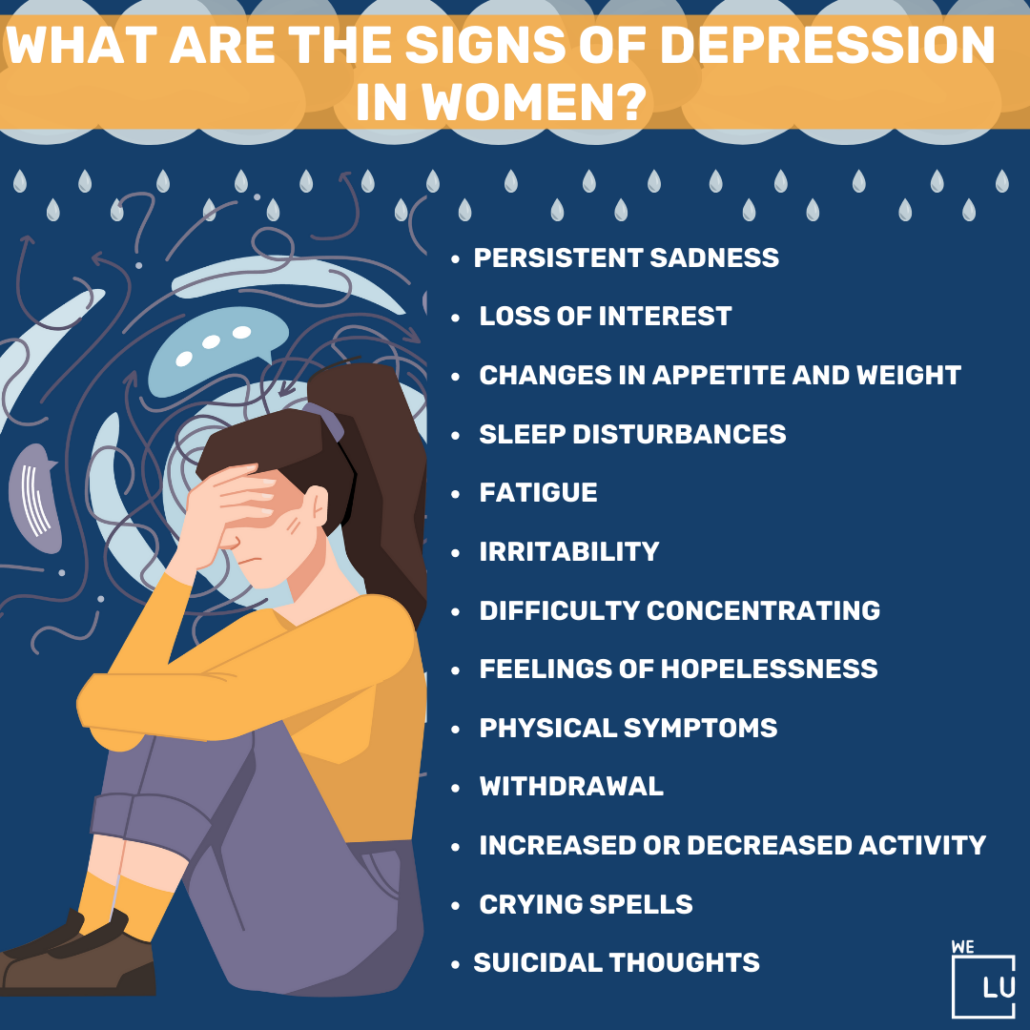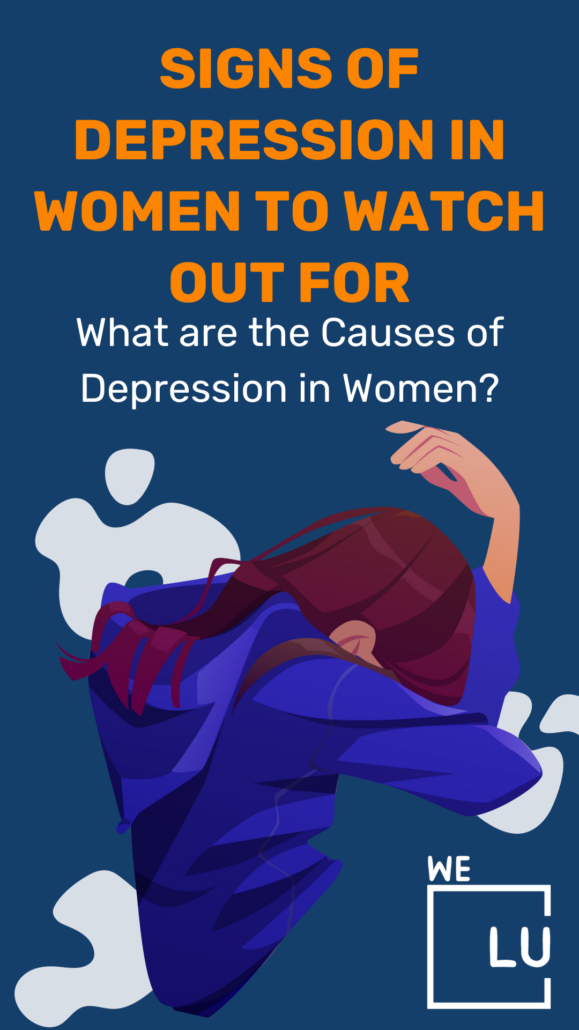Can Birth Control Cause Depression?
Birth control pills could increase the chances of feeling depressed.
Depression is a common mental illness with various challenging symptoms. Researchers are still figuring out the factors that contribute to depression risk. However, a recent study revealed that oral contraceptives, especially in the first two years of use, may raise the risk of depression by up to 130%.
Understanding and limiting these risk factors is crucial for minimizing the chances of depression.
Birth Control Pills and Depression Risk
Hormonal birth control can cause mood swings and emotional effects in some women. While some may find relief from crankiness or anxiety, others may experience depression or intense emotional ups and downs, leading them to stop using hormonal contraceptives.
Various forms of hormonal contraceptives, like the pill, mini pill, implant, shot, IUD, patch, and vaginal ring, aim to prevent pregnancy.
Researchers are not entirely sure if hormonal birth control causes depression, with conflicting findings in studies. While most information suggests no direct link, the uncertainty arises from individual variations in hormonal reactions and conflicting research results.
Some studies even suggest additional benefits, such as reducing depressive symptoms or emotional symptoms related to premenstrual dysphoric disorder (PMDD).
All types of hormonal contraception, especially progesterone-only forms like the IUD, were linked to a higher risk of depression, particularly in teens aged 15 to 19. This association challenges the belief that the IUD only affects the local area and doesn’t impact the rest of the body.
However, despite the increased risk, the number of affected women is relatively small. About 2.2 out of 100 women using hormonal birth control developed depression, compared to 1.7 out of 100 who did not. This is according to research at Harvard Medical School.
While we shouldn’t stop prescribing hormonal birth control, it’s crucial to discuss the potential risk of depression, along with other side effects, when counseling patients about birth control options. Every medication has potential risks and benefits; doctors must be aware of these for effective counseling.
Common Risk Factors for Depression
Depression can have a significant impact on daily life, affecting work, relationships, and the ability to enjoy things. It brings a mix of physical and emotional symptoms, like trouble sleeping, restlessness, and sadness.
Certain things can raise the likelihood of someone getting depression. This includes the following:
- Having a chronic medical condition.
- A brain-altering condition like Parkinson’s disease.
- Going through severe trauma.
- Dealing with high levels of stress.
Depression can happen to anyone, but it’s noticed that more women tend to experience it than men. This could be because of factors like hormonal changes during important life events such as pregnancy or menopause.
Women might be more prone to certain types of depression linked to hormonal shifts. These changes in hormone levels at different life stages can play a role in mood disorders. Recognizing these gender-specific aspects of depression is vital for creating personalized and effective mental health support for women.

Skip To:
Learn More:
- Can Birth Control Cause Anxiety? Which Type is Best For You?
- Top 5 Postpartum Depression Medication Options That Work
- How Long Does Postpartum Depression Last?
- Signs of Depression in Women to Watch Out For. Comparing Depression in Men Vs. Women.
- Risks of Depression During Pregnancy. Learn More About Pregnancy Depression Symptoms and Treatment.
- Postpartum Depression Treatment, Causes, Symptoms, Anxiety in Pregnancy, and Risks
- Understanding Postpartum Anxiety. Guide to the Postpartum Anxiety Symptoms, Causes, Diagnosis, and Treatment
- What is Crippling Depression? Learning How to Deal With Crippling Depression
- Guide to Situational Depression Symptoms, Causes, and Effective Treatment
Several factors contribute to the difference in depression rates between genders, including biological, psychological, and social aspects. For women, hormonal changes during crucial life stages like puberty, menstrual cycles, pregnancy, and menopause can affect their likelihood of experiencing depression. The ups and downs of estrogen and progesterone levels during these stages are connected to mood changes and an increased risk of depressive symptoms.
We Level Up FL Mental Health Center Tips To Cope With Birth Control Depression
✅ If you’re dealing with birth control-related depression, try talking to your healthcare provider about alternative options.
✅ Consider non-hormonal birth control methods or adjustments to find what works best for you.
✅ Seeking support from friends, family, or a mental health professional can also make a positive difference.
Get birth control depression counseling that works. Discover professional help from We Level Up Florida’s mental health therapists. Start getting support with a free call to our mental health hotline.
Get Help. Get Better. Get Your Life Back.
Searching for Accredited Dual Diagnosis Mental Health Centers Near You?
Even if therapy failed previously, or are in the middle of a difficult crisis, we stand ready to support you. Our trusted behavioral health specialists will not give up on you. When you feel ready or just want someone to speak to about counseling alternatives to change your life call us. Even if we cannot assist you, we will lead you to wherever you can get support. There is no obligation. Call our hotline today.
FREE 24/7 Dual Diagnosis Mental Health Services HotlineHow To Get Help for Depression?
While there isn’t a clear link between birth control and depression, numerous women report feeling depressed while using birth control pills. One study suggests this might be due to inconsistencies in the use of the term “depression” and variations in pill formulations.
The perceived connection could also be influenced by the high number of women experiencing clinical depression, around 12 million annually in the United States, with many of them likely using birth control pills. On the other hand, some studies suggest improved mood with birth control use, particularly in reducing symptoms of depression and lowering the likelihood of suicide attempts. Despite conflicting evidence, depression is listed as a possible side effect on many birth control package inserts, indicating the complexity of this relationship.
Pay attention to any mood swings or shifts you experience while using hormonal birth control. Signs of potential depression may include the following:
- Persistent sadness or low mood.
- Loss of interest or pleasure in activities.
- Changes in appetite or weight.
- Insomnia or oversleeping.
- Fatigue or loss of energy.
- Feelings of worthlessness or guilt.
- Difficulty concentrating or making decisions.
- Irritability or restlessness.
- Physical symptoms like aches and pains.
- Thoughts of death or suicide.
If you or someone you know is experiencing these signs, seeking support from a healthcare professional is essential. If you have been experiencing the mentioned symptoms for over two weeks, if they feel more intense than usual mood changes, or if your mood is impacting your work, school, or home, contact your doctor or a mental health professional promptly.
Do you have questions about the use of birth control and depression or depression treatment in general? Call our helpline 24/7.

End the Emotional Pain. Get Your Life Back.
Feeling Depressed, Anxious or Struggling with Mental Health Illness? Get Safe Comfortable Mental Health Dual Diagnosis High-Quality Therapy From Counselors That Care. Begin Your Recovery Now.
Hotline (855) 940-6125What To Do When Depressed?
When feeling depressed, it’s crucial to reach out for support. Share your feelings with someone you trust, whether a friend, family member, or a mental health professional. Talking about what you’re going through can provide comfort and understanding. Also, consider engaging in activities that bring you joy or relaxation, even if they seem minor. This could include hobbies, exercise, or spending time in nature.
Establishing a routine can help manage depression. Create a schedule that includes regular sleep patterns, nutritious meals, and some form of physical activity. Small, achievable goals can also make a significant difference—break down tasks into smaller steps to make them more manageable. Furthermore, prioritize self-care and be patient with yourself.
Recovery takes time, and it’s okay to seek professional help, such as therapy or counseling, to navigate through your emotions and develop coping strategies. If you find yourself unable to cope or having thoughts of self-harm, don’t hesitate to seek immediate assistance. Contact a crisis hotline or a healthcare provider, or go to the nearest emergency room. You don’t have to face depression alone, and help is available to support you through difficult times.
Depression Therapy
Here’s a list of various evidence-based therapeutic approaches commonly used in treating depression:
- Cognitive Behavioral Therapy (CBT): Focuses on identifying and changing negative thought patterns and behaviors.
- Psychodynamic Therapy: Explores unconscious thoughts and feelings to understand and address the root causes of depression.
- Interpersonal Therapy (IPT): Concentrates on improving interpersonal relationships and communication skills to alleviate depressive symptoms.
- Mindfulness-Based Cognitive Therapy (MBCT): Combines mindfulness meditation with cognitive therapy to prevent relapse into depression.
- Dialectical Behavior Therapy (DBT): Incorporates mindfulness and acceptance strategies alongside cognitive-behavioral techniques, especially useful for mood regulation.
- Humanistic Therapy: Emphasizes self-exploration, personal growth, and understanding one’s feelings to improve overall well-being.
- Narrative Therapy: Helps individuals reframe and reconstruct their life stories, focusing on empowering narratives.
- Solution-Focused Brief Therapy (SFBT): Concentrates on identifying and enhancing strengths and solutions rather than dwelling on problems.
- Art Therapy: Utilizes artistic expression to explore and communicate emotions, often beneficial for those who find it challenging to verbalize feelings.
- Music Therapy: Incorporates music and musical activities to address emotional, cognitive, and social needs in the therapeutic process.
- Animal-Assisted Therapy: Involves interaction with animals to promote emotional well-being and provide a sense of companionship.
- Light Therapy: Exposure to bright light to regulate circadian rhythms and alleviate symptoms, particularly in seasonal affective disorder (SAD).
- Group Therapy: Provides a supportive environment for individuals to share experiences, receive feedback, and gain insights from others facing similar challenges.
- Family Therapy: Involves family members in the therapeutic process to improve communication and address familial dynamics contributing to depression.
- Couples Therapy: Focuses on improving communication and relational dynamics between romantic partners to alleviate depressive symptoms.
Choosing the most effective therapy often depends on individual preferences, the severity of depression, and the underlying factors contributing to it. Working collaboratively with a mental health professional is essential to determine the most suitable approach for your needs.
Depression Medication
Here’s a list of various types of medications commonly prescribed for depression:
- Selective Serotonin Reuptake Inhibitors (SSRIs):
- Fluoxetine (Prozac).
- Sertraline (Zoloft).
- Escitalopram (Lexapro).
- Paroxetine (Paxil).
- Citalopram (Celexa).
- Serotonin-Norepinephrine Reuptake Inhibitors (SNRIs):
- Venlafaxine (Effexor).
- Duloxetine (Cymbalta).
- Desvenlafaxine (Pristiq).
- Tricyclic Antidepressants (TCAs):
- Amitriptyline.
- Nortriptyline.
- Imipramine.
- Monoamine Oxidase Inhibitors (MAOIs):
- Phenelzine (Nardil).
- Tranylcypromine (Parnate).
- Isocarboxazid (Marplan).
- Atypical Antidepressants:
- Bupropion (Wellbutrin).
- Mirtazapine (Remeron).
- Trazodone.
- Noradrenergic and Specific Serotonergic Antidepressants (NaSSAs): Mirtazapine (Remeron).
- Norepinephrine Dopamine Reuptake Inhibitor (NDRI): Bupropion (Wellbutrin).
- Selective Serotonin Reuptake Enhancer (SSRE): Tianeptine.
- Serotonin Antagonist and Reuptake Inhibitor (SARI): Trazodone.
- Combination Antidepressant: Venlafaxine + Mirtazapine (California Rocket Fuel).
Medication effectiveness varies among individuals, and finding the proper medication or combination often involves a trial-and-error process. Additionally, these medications may have side effects, and a healthcare professional should monitor their use. Always consult a qualified healthcare provider to determine the most suitable prescription and treatment plan based on individual needs and medical history.
Suppose you or someone you know is dealing with depression, which affects their daily functioning. In that case, We Level Up Florida Mental Health Treatment Center provides personalized care with a team of experienced professionals. Begin your journey towards better health by taking the first step towards healing. Get help. Call We Level Up FL now. Each call is free and confidential.
First-class Facilities & Amenities
World-class High-Quality Mental Health Services & Behavioral Health Substance Abuse Treatment
Rehab Centers TourRenowned Mental Health Centers. Serene Private Facilities. Inpatient Rehab Programs Vary.
Mental Health Helpline (855) 940-6125Proven recovery success experience, backed by a Team w/ History of:
15+
Years of Unified Experience
100s
5-Star Reviews Across Our Centers
10K
Recovery Successes
- Comprehensive Dual-Diagnosis Treatment
- Complimentary Family & Alumni Programs
- Coaching, Recovery & Development Events
- Comfortable Onsite Medical Detox Center
Common Birth Control Side Effects
Some people may experience depression as a side effect of birth control. Hormonal contraceptives like pills, patches, or implants can affect mood in specific individuals, though not everyone is affected. Here are the common side effects associated with various forms of birth control, including potential links to depression:
Oral Contraceptives (Birth Control Pills):
- Nausea.
- Breast tenderness.
- Headaches.
- Weight gain or loss.
- Mood changes.
- Spotting between periods.
- Changes in libido.
- Menstrual cycle irregularities.
- Some women may experience mood changes, including symptoms of depression. It’s essential to monitor mood and consult with a healthcare provider if persistent.
Contraceptive Patch:
- Skin irritation at the patch site.
- Breast discomfort.
- Nausea.
- Headaches.
- Menstrual cycle changes.
- While not as commonly reported, mood changes, including feelings of depression, have been mentioned in some cases.
Contraceptive Ring:
- Vaginal irritation or discharge.
- Breast tenderness.
- Nausea.
- Headaches.
- Menstrual cycle changes.
- Some users may experience changes in mood, including symptoms of depression. It’s important to discuss any concerns with a healthcare provider.
Injectable Contraceptives:
- Weight gain.
- Irregular menstrual bleeding.
- Headaches.
- Breast tenderness.
- Decreased bone density with long-term use.
- Mood changes, including symptoms of depression, have been reported by some individuals using injectable contraceptives. Consultation with a healthcare provider is recommended.
Intrauterine Device (IUD):
- Cramping or pelvic pain.
- Spotting between periods.
- Irregular periods.
- Perforation of the uterus (rare).
- Expulsion of the IUD.
- Increased menstrual flow and cramps (copper IUD).
- While depression is not commonly listed as a side effect, some users have reported mood changes, including feelings of depression. Consult with a healthcare provider if concerns arise.
Implant (Nexplanon):
- Bruising or pain at the insertion site.
- Changes in menstrual bleeding.
- Headaches.
- Breast pain.
- Weight gain.
- Mood changes, including symptoms of depression, have been reported by some individuals using the implant. Consultation with a healthcare provider is recommended.
Barrier Methods (Condoms, Diaphragms):
- Allergic reactions to latex or spermicides.
- Discomfort or irritation.
- Risk of breakage or slippage (condoms).
- Depression is not commonly associated with barrier methods.
Emergency Contraception (Morning-After Pill):
- Nausea or vomiting.
- Fatigue.
- Breast tenderness.
- Headaches.
- Changes in menstrual bleeding.
- While not a typical side effect, hormonal changes associated with emergency contraception may influence mood in some cases. Consult with a healthcare provider if concerns arise.
It’s crucial to communicate openly with a healthcare provider about any side effects, including mood changes or symptoms of depression, to explore suitable alternatives or adjustments to the chosen birth control method.
At We Level Up FL, we specialize in expertly diagnosing and treating depression to help you reclaim a brighter and more fulfilling life. Whether you’re seeking therapy, medication management, or a combination of both, our comprehensive approach tailors solutions to your unique needs.
Take the first step towards healing with We Level Up FL, where your mental health is our priority. Contact our free hotline 24/7.
World-class, Accredited, 5-Star Reviewed, Effective Mental Health Dual Diagnosis Programs. Complete Integrated Inpatient Rehab with Free Post Discharge Therapy Planning.
CALL (855) 940-6125End the Emotional Pain Rollercoaster. Gain Stability & Happiness Through Recovery Treatment. Start Mental Health Counseling Today. Get Free No-obligation Guidance by Behaviroal Health Specialists Who Understand Mental Health Recovery.
Therapist Tips to Cope and Combat Depressive Episodes
Experience Transformative Recovery at the We Level Up Treatment Center.
See our authentic success stories. Get inspired. Get the help you deserve.



Start a New Life
Begin with a free call to a behavioral health treatment advisor. Learn more about our dual-diagnosis programs. The We Level Up treatment center network delivers recovery programs that vary by each treatment facility. Call to learn more.
- Personalized Care
- Caring Accountable Staff
- World-class Amenities
- Licensed & Accredited
- Renowned w/ 5-Star Reviews
We’ll Call You
Search We Level Up FL Can Birth Control Cause Depression? Mental Health Topics & Resources
Sources
- Does birth control cause depression? Martell S, Marini C, Kondas CA, Deutch AB. Psychological side effects of hormonal contraception: a disconnect between patients and providers. Contracept Reprod Med. 2023 Jan 17;8(1):9. Doi: 10.1186/s40834-022-00204-w. PMID: 36647102; PMCID: PMC9842494.
- Mu E, Kulkarni J. Hormonal contraception and mood disorders. Aust Prescr. 2022 Jun;45(3):75-79. Doi: 10.18773/austprescr.2022.025. Epub 2022 Jun 1. Erratum in: Aust Prescr. 2022 Aug;45(4):147. PMID: 35755988; PMCID: PMC9218393. Can Birth Control Cause Depression? Birth Control and Depression. Related Topics & Resources.
- Ehsanpour S, Aghaii A, Kheirabadi GR. The association of contraceptive methods and depression. Iran J Nurs Midwifery Res. 2012 Mar;17(3):234-8. PMID: 23833619; PMCID: PMC3696218. Birth Control and Depression. Related Topics & Resources.
- Hall KS, Steinberg JR, Cwiak CA, Allen RH, Marcus SM. Contraception and mental health: a commentary on the evidence and principles for practice. Am J Obstet Gynecol. 2015 Jun;212(6):740-6. Doi: 10.1016/j.ajog.2014.12.010. Epub 2014 Dec 12. PMID: 25511241; PMCID: PMC4457595.
- Contraceptives and mental health – Veterans Affairs (.gov) Can Birth Control Cause Depression? Birth Control and Depression. Related Topics & Resources.
- Birth control methods – Office on Women’s Health (.gov)
- David HP. Mental health and family planning. Fam Plann Perspect. 1971 Apr;3(2):20-3. PMID: 5098783.
- Bains N, Abdijadid S. Major Depressive Disorder. [Updated 2023 Apr 10]. In: StatPearls [Internet]. Treasure Island (FL): StatPearls Publishing; 2023 Jan-. Available from: https://www.ncbi.nlm.nih.gov/books/NBK559078/
- Does birth control make you depressed? McKetta S, Keyes KM. Oral contraceptive use and depression among adolescents. Ann Epidemiol. 2019 Jan;29:46-51. Doi: 10.1016/j.annepidem.2018.10.002. Epub 2018 Oct 13. PMID: 30674431; PMCID: PMC6349422. Can Birth Control Cause Depression? Birth Control and Depression. Related Topics & Resources.
- What is Depression? – Substance Abuse and Mental Health Services Administration (SAMHSA)







